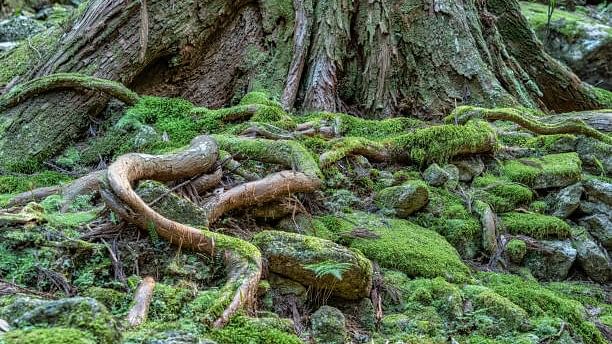
Image for representation.
Credit: iStock Photo
A few months ago, we were holidaying in Himachal Pradesh, exploring both popular and lesser-known destinations. Our penultimate stop was Batseri, a quiet hamlet in the Sangla Valley. The property where we stayed offered us stunning views of the snow-clad Himalayan peaks and the emerald waters of the Baspa River, weaving through rocks and pebbles.
On the second day, we took an exhilarating day trip to Chitkul, the last Indian village on the Indo-Tibet border, and returned in the afternoon. To reach our resort, we had to cross a bridge over the Baspa, navigate a steep climb, and then follow a concrete pathway leading to the building. After crossing the river, our driver pulled over behind a line of several cabs, motorcycles, and a tempo. Confused, we alighted and walked ahead to investigate.
An old deodar tree, a part of the property, had uprooted and fallen across the path, blocking all human and vehicular movement. The ancient roots and gnarled branches of the tree, outlined against the fading sunlight, gave it an eerie look. The administration had already swung into action. The monotonous whirr of a giant chainsaw cutting the tree into large chunks and the occasional thud of the felled logs sharply contrasted with the gurgling of the river or the twittering of the home-bound birds. The hotel premises housed a sprawling apple farm, which employed a large number of local residents. Given the gravity of the situation, they enthusiastically chipped in to hasten the clearance work.
With no clear timeline in sight, we strolled around or sat on the kerbside. The unpredictability and difficulty of life in the mountains struck me. What started as a smooth, half-day trip had now earned an unsolicited extension. For us, it was an unusual but one-off event; for the locals, it was just another part of life. The massive size of the tree, its sturdy roots enmeshed deep within the earth, and its elevation made the task even more arduous.
A group of local women arrived with large supplies of tea and biscuits for the entire workforce, allowing the men a brief respite as they sipped the piping hot beverage. The sun was setting and the air was turning nippy, but our hearts felt warm. Here was a community living under the constant threat of nature’s unpredictability, yet upholding a strong sense of solidarity and fraternity.
Eventually, a narrow tract was cleared, and the stranded people —tourists and villagers alike — trundled out, relieved.